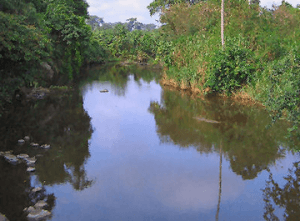Ghana tour operators ask to be engaged in decision making to preserve water bodies
 The Tour Operators Union of Ghana (TOUGHA), has urged the Water Resources Commission to engage them in the decision making so they can help in strategizing best ways to conserve the country’s water bodies for tourist attraction.
The Tour Operators Union of Ghana (TOUGHA), has urged the Water Resources Commission to engage them in the decision making so they can help in strategizing best ways to conserve the country’s water bodies for tourist attraction.
The Union noted that among the committees of the Water Resources Commission, there were no tourism interests to be part of the decision making process to contribute to the development of the tourism sector.
Mrs Nancy Quartey-Sam, the President of TOUGHA made the appeal during a panel discussion in Accra on the Ghana Journalists Association’s programme dubbed “Business Advocate” on Ghana Television supported by BUSAC Fund, Denmark Embassy and the United States Agency for International Development.
Speaking on the topic: “Protecting the Wetlands as a Resource for Tourism Development in the country,” Ms Quartey-Sam said wetlands were distributed extensively all over the country and were important for their fundamental ecological functions as well as their socio-economic benefits.
She said the country was blessed with natural resources and that there was the need to ensure the protection of those resources, stressing that the Union must be made to collaborate with the District Assemblies to offer technical advice on potential tourist wetlands before issuing building permits.
She, however, added that wetlands were closely associated with the numerous inland fresh water and coastal marine systems in the country and that the interface between the fresh water and marine ecosystem was the coastal lagoon systems and mangroves.
Ms Quartey-Sam further stated that there were numerous marine and brackish wetlands along the entire 500km coastline of Ghana. These include the Keta Lagoon Complex, Songhor, Sakumo, Muni lagoons and the Densu Delta which have been designated as Ramsar Sites in view of their national and international importance for fishing.
She said the Union had been engaging in its advocacy programme to educate the public on the importance of water bodies and the great potentials it had for the country’s tourism industry.
She expressed concern about the spate of pollution of water bodies through the activities of illegal mining and called on authorities to enforce the laws to serve as deterrent to potential offenders.
This, she noted, are critical because freshwater wetlands in the country are important for agriculture, water supply and recreation and other ecosystem services.
Mr Ronald Abrahams, Densu Basin Officer of the Water Resources Commission said the country developed a legislative instrument on wetlands management system to protect and conserve water bodies.
Mr Abrahams said the Ramsar sites were the relaxation and feeding grounds for over 70 water bird species including the Densu Delta Ramsar Site, the Sakumono Ramsar Site, and the Songor Ramsar Site which serves as the breeding grounds for those species.
He said the Commission ran training programmes for Non-Governmental Organizations on protecting the country’s wetlands and promised to bring TOUGHA on board for effective consultations.
Mr Abrahams hinted that the Commission will soon establish a security coast to protect the water bodies from pollution and destruction.
Mr Benjamin Anani Nsiah, Event Manager, Ghana Tourism Authority said the country was good in the promulgation of laws but weak in enforcing them. He urged the appropriate authorities to walk the talk and enforce laws on water bodies’ pollution.
Source; GNA
